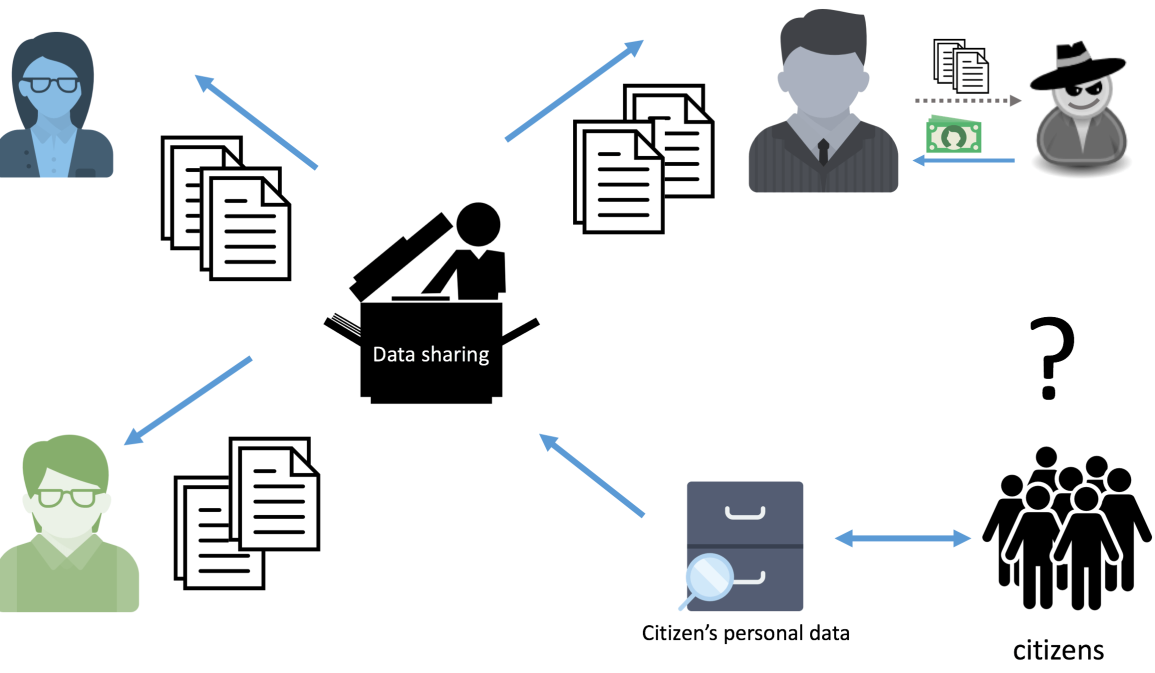Introduction
A Data Sharing Agreement (DSA) is a formal contract that governs the sharing of data between two or more organizations. In the context of the United Kingdom, DSAs are crucial to ensuring compliance with data protection laws, particularly the UK General Data Protection Regulation (UK GDPR) and the Data Protection Act 2018. This guide provides a comprehensive overview of DSAs, their importance, key components, and best practices for implementation, aligned with the laws of England and Wales.
Importance of Data Sharing Agreements
Data Sharing Agreements are vital for several reasons
- Legal Compliance: Ensures that data sharing practices comply with UK GDPR and the Data Protection Act 2018.
- Accountability: Establishes clear responsibilities and obligations for all parties involved in data sharing.
- Transparency: Provides a framework for informing data subjects about how their data will be used and shared.
- Risk Management: Helps identify and mitigate potential risks associated with data sharing.
Key Components of a Data Sharing Agreement
Purpose and Scope
A DSA should clearly outline the purpose of data sharing and the scope of the agreement. This includes specifying
- The objectives and benefits of sharing data.
- The types of data to be shared.
- The entities involved in the data sharing process.
Legal Basis for Data Sharing
The agreement must state the legal basis for data sharing under the UK GDPR. This could include
- Consent: Data subjects have given explicit consent for their data to be shared.
- Contract: Data sharing is necessary for the performance of a contract.
- Legal Obligation: Data sharing is required by law.
- Vital Interests: Data sharing is necessary to protect someone’s life.
- Public Task: Data sharing is necessary to perform a task in the public interest or for official functions.
- Legitimate Interests: Data sharing is necessary for legitimate interests pursued by the data controller or a third party.
Data Protection Principles
The DSA should ensure that data sharing complies with the key data protection principles outlined in the UK GDPR
- Lawfulness, Fairness, and Transparency: Data must be processed lawfully, fairly, and in a transparent manner.
- Purpose Limitation: Data should only be collected for specified, explicit, and legitimate purposes.
- Data Minimisation: Only the minimum amount of data necessary for the purpose should be shared.
- Accuracy: Data must be accurate and kept up to date.
- Storage Limitation: Data should not be kept for longer than necessary.
- Integrity and Confidentiality: Data must be processed in a manner that ensures appropriate security.
Data Subject Rights
he agreement must address how the rights of data subjects will be protected, including
- Right to be informed.
- Right of access.
- Right to rectification.
- Right to erasure.
- Right to restrict processing.
- Right to data portability.
- Right to object.
- Rights related to automated decision-making and profiling.
Data Security Measures
A DSA should specify the technical and organisational measures in place to protect the data being shared, such as
- Encryption and anonymisation.
- Access controls and authentication.
- Regular security assessments and audits.
Roles and Responsibilities
The agreement should clearly define the roles and responsibilities of each party involved in data sharing. This includes
- Data Controllers: Entities that determine the purposes and means of processing personal data.
- Data Processors: Entities that process data on behalf of the data controller.
Data Breach Management
The DSA must outline procedures for managing data breaches, including
- Reporting requirements to the Information Commissioner’s Office (ICO).
- Notification procedures to affected data subjects.
- Steps to mitigate and rectify breaches.
Termination and Review
The agreement should specify the terms for terminating the DSA and include provisions for regular reviews to ensure continued compliance with data protection laws.
Best Practices for Implementing a Data Sharing Agreement
Conduct a Data Protection Impact Assessment (DPIA)
Before entering into a DSA, conduct a DPIA to identify and mitigate any potential risks to data subjects.
Ensure Informed Consent
Where consent is the legal basis for data sharing, ensure that it is informed, specific, and freely given.
Regular Training and Awareness
Provide regular training to staff involved in data sharing to ensure they understand their responsibilities and the importance of data protection.
Monitor and Audit
Regularly monitor and audit data sharing practices to ensure compliance with the DSA and data protection laws.
Maintain Documentation
Keep detailed records of all data sharing activities, decisions, and actions taken in relation to the DSA.
Conclusion
Data Sharing Agreements are essential tools for ensuring that data sharing practices comply with UK data protection laws. By clearly outlining the purpose, legal basis, and responsibilities of all parties involved, DSAs help to protect the rights of data subjects and mitigate risks. Implementing best practices, such as conducting DPIAs and providing regular training, can further enhance the effectiveness of data sharing arrangements.
What is a Data Sharing Agreement (DSA)?
A Data Sharing Agreement (DSA) is a formal contract that outlines the terms and conditions under which data is shared between organizations. It ensures that data sharing practices comply with legal requirements, protect data subjects’ rights, and specify the responsibilities of each party involved.
Why is a Data Sharing Agreement important?
A DSA is important because it provides a clear framework for sharing data in a manner that is legally compliant, transparent, and secure. It helps organizations manage risks, maintain accountability, and protect the rights of data subjects as per the UK GDPR and the Data Protection Act 2018.
Who needs a Data Sharing Agreement?
Any organization that plans to share personal data with another entity needs a DSA. This includes public authorities, private companies, non-profits, and any other entities that process personal data in the UK. The DSA helps ensure that all parties involved understand their obligations and responsibilities.
What should be included in a Data Sharing Agreement?
A comprehensive DSA should include the following key components
- Purpose and scope of data sharing
- Legal basis for data sharing
- Data protection principles
- Data subject rights
- Data security measures
- Roles and responsibilities of each party
- Data breach management procedures
- Terms for termination and review
What is the legal basis for data sharing under UK GDPR?
The legal basis for data sharing under the UK GDPR can include consent, contract, legal obligation, vital interests, public task, and legitimate interests. The DSA must clearly state which legal basis applies to the data sharing arrangement.
How does a Data Sharing Agreement protect data subjects’ rights?
A DSA outlines how the rights of data subjects will be protected, including their rights to be informed, access, rectification, erasure, restriction of processing, data portability, objection, and rights related to automated decision-making and profiling. It ensures that data subjects are aware of how their data will be used and shared.
What security measures should be included in a Data Sharing Agreement?
A DSA should specify technical and organisational measures to protect shared data. This includes encryption, anonymisation, access controls, authentication procedures, and regular security assessments and audits. These measures help ensure the confidentiality, integrity, and availability of the data.
How should data breaches be managed under a Data Sharing Agreement?
The DSA must outline procedures for managing data breaches, including reporting requirements to the Information Commissioner’s Office (ICO), notification procedures to affected data subjects, and steps to mitigate and rectify breaches. It ensures a coordinated and effective response to data breaches.
How often should a Data Sharing Agreement be reviewed?
A DSA should be reviewed regularly to ensure continued compliance with data protection laws and to reflect any changes in the data sharing arrangement. Regular reviews help identify and address any issues or risks that may arise over time.
Where can I find more information and guidance on Data Sharing Agreements?
For more information and guidance on DSAs, you can refer to the Information Commissioner’s Office (ICO) website. The ICO provides detailed guidelines and best practices for data sharing to help organizations comply with data protection laws.
- Short Memorandum Of Understanding For Commercial Transactions - August 8, 2024
- Privacy Notice Templates - August 7, 2024
- Paid Business Directory Website Terms Of Use - August 7, 2024










